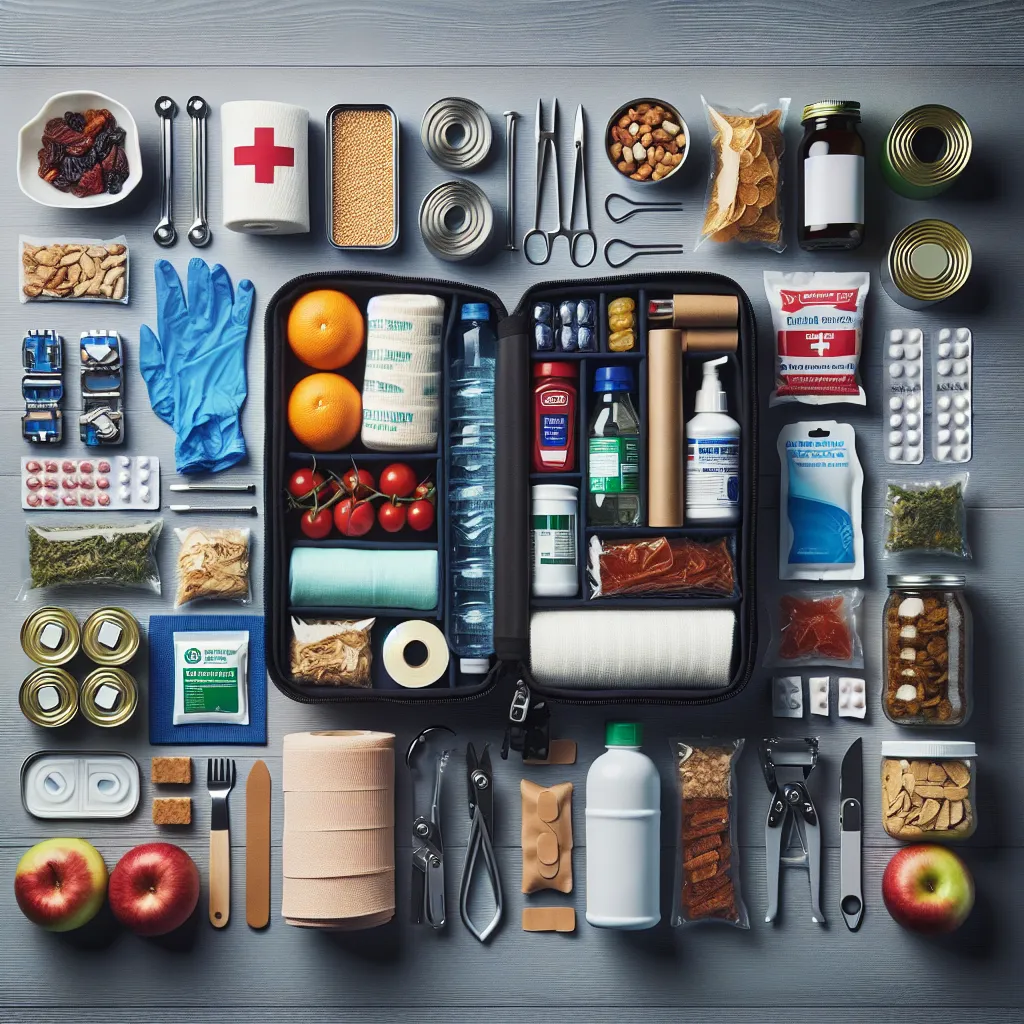Essential Supplies for Emergency Preparedness: The Basics of Prepping
When it comes to emergency preparedness, having the right supplies can make all the difference. Whether you’re facing a natural disaster or a man-made crisis, being equipped with essential supplies is crucial for your safety and well-being. As you embark on your journey into prepping, it’s important to start with the basics.
First and foremost, water is the most essential supply to have in any emergency preparedness kit. Plan for at least one gallon of water per person per day for at least three days. Additionally, non-perishable food items such as canned goods, energy bars, and dried fruits are excellent choices to sustain you during an emergency. Don’t forget to include a manual can opener in your kit.
Another crucial aspect of prepping is ensuring you have a first aid kit that includes bandages, antiseptic wipes, pain relievers, and any necessary prescription medications. It’s also wise to have a supply of basic hygiene and sanitation items, such as moist towelettes, garbage bags, and personal hygiene products.
Basic tools and supplies like a flashlight, extra batteries, a multi-tool, and a whistle should not be overlooked. In addition, a supply of cash and important documents in a waterproof container can be invaluable during a crisis when electronic forms of payment and communication may not be available.
As you begin your journey in emergency preparedness, these essential supplies are the building blocks of a well-rounded prepping strategy. While the specific contents of your emergency kit may vary based on your unique needs and circumstances, ensuring that you have the basics covered will set you on the right path towards being prepared for the unexpected.
Survival Skills 101: A Beginner’s Guide to Prepping for Emergencies
When it comes to emergency preparedness, survival skills are essential for anyone looking to get started with prepping. Whether you’re facing a natural disaster, civil unrest, or a global crisis, having the right skills can make all the difference. Here’s a beginner’s guide to prepping for emergencies, focusing on survival skills 101.
First and foremost, it’s crucial to learn basic first aid. Knowing how to treat minor injuries, stop bleeding, and perform CPR can save lives in an emergency situation. Consider taking a first aid class or even getting certified in CPR to enhance your skills.
Next, mastering fire-starting techniques is essential. Whether it’s starting a fire for warmth, cooking, or signaling for help, being able to start a fire without matches or lighters is a fundamental survival skill. Practice using methods such as friction fire, fire strikers, and magnifying glasses to ensure you can confidently start a fire in any situation.
Navigation skills are also critical for survival. Learning how to use a map and compass, as well as understanding basic orienteering, can help you find your way if you’re lost or displaced during an emergency. Additionally, consider learning how to use GPS and offline mapping apps on your smartphone as a modern navigation backup.
Finally, having basic self-defense skills can provide peace of mind in uncertain times. Taking a self-defense class to learn physical and verbal techniques for personal safety can be invaluable during emergencies when law enforcement may be unavailable.
By mastering these fundamental survival skills, you’ll be better prepared to handle a wide range of emergency scenarios. Remember, practice makes perfect, so regularly honing these skills is key to being well-prepared for whatever may come your way.

